Five years ago on Saturday 23rd September 2017 I photographed a lively march in North London against council plans for a huge giveaway of council housing to developers before rushing down to Brixton in South London where low paid workers at the Ritzy cinema had been on strike for a year.
Haringey against council housing sell-off
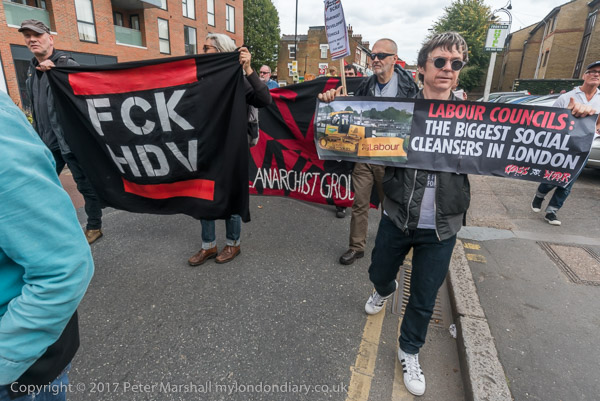
When Labour came to power in 1997, Tony Blair made his first speech as prime minister in the centre of London’s Aylesbury Estate, declaring that “the poorest people in our country have been forgotten by government” and promising that housing would be at the centre of his government’s programme.
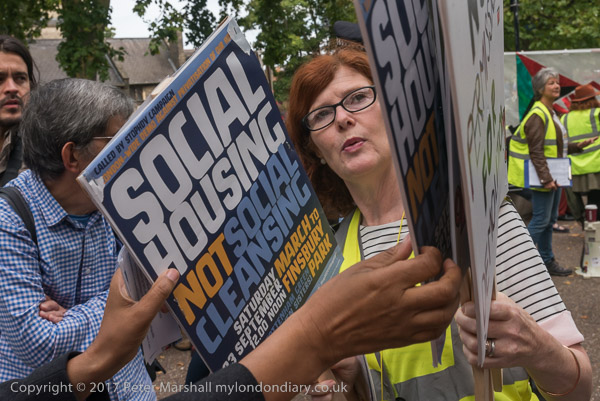
But their policy of estate regeneration has proved a disaster, leading to the demolition of social housing and its replacement by housing for the rich and overseas investors, along with small amounts of highly unaffordable ‘affordable housing’ and a largely token amount of homes at social rents.
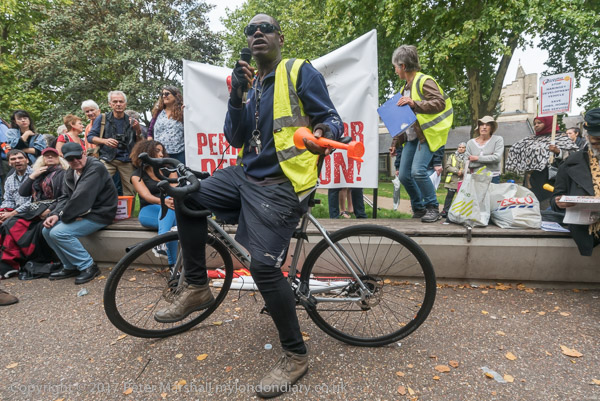
As an article in the Financial Times by Anna Minton in January 2022 pointed out, Labour’s continuing support for Thatcher’s ‘Right-to-Buy’ and for ‘buy-to-let mortgages’ together with the pegging of housing benefit to market levels encouraged an enormous growth of buy to let properties from previously council flats and houses. In 2019 a Greater London Authority report found that 42 per cent of homes sold under Right to Buy were now privately let, with average rents in London of £1752 in the private sector compared to social rents of £421 a month.
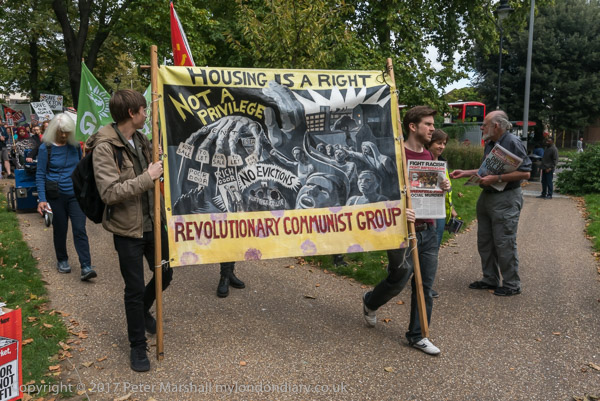
As Minton also points out, under New Labour there were only 7,870 new council homes built during their 13 years in office, a miniscule number compared to Thatcher’s period as Conservative prime ministers when the lowest annual number was 17,710 homes.
Under New Labour the average was 562 per year compared to 41,343 under Thatcher – though numbers dropped steeply during her tenure. Housing Associations have provided some social housing, but have become increasingly more commercial in their operations.
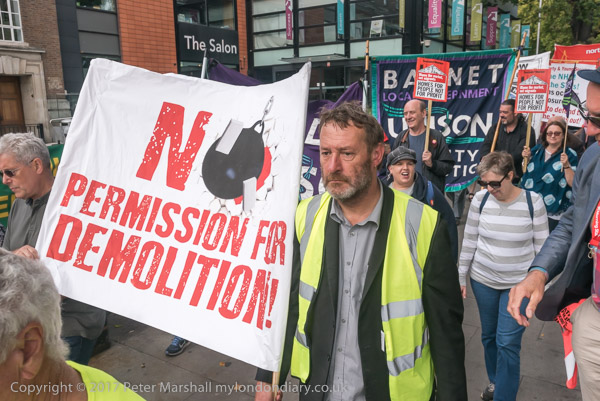
Labour’s housing policies were disastrous and largely continue, with Labour councils in London continuing to collude with developers to demolish council-owned homes. A prime example of this was the proposed ‘Haringey Development Vehicle’, HDV, under which Haringey Council was making a huge transfer of council housing to Australian multinational Lendlease.
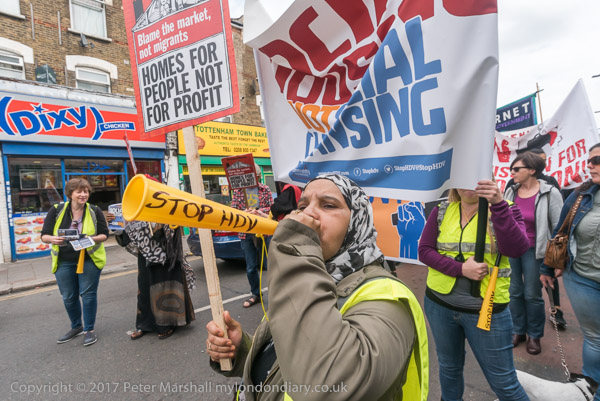
The protest in Haringey was a lively one involving many local residents as well as other housing activists from across London. The council’s deal would have led to the destruction of many of the council’s estates over a 15 year period, and led to a revolt at local elections which replaced many of those backing the scheme by more left-wing Labour members supported by Momentum.
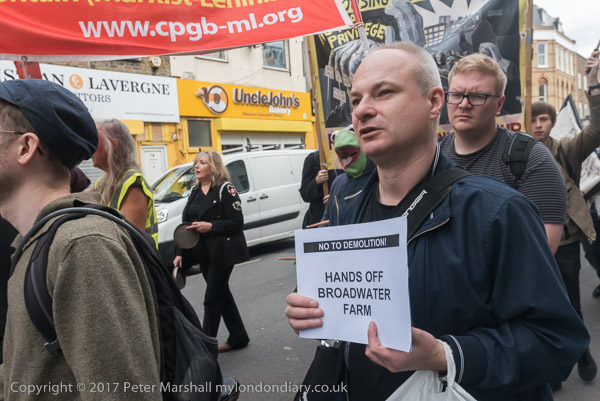
Under new management, the council has produced an updated version of its redevelopment plans, although some activists see these as still representing a give-away to developers. But there does seem a greater emphasis on collaboration with the local community over redevelopment schemes and on providing a greater element of social housing.
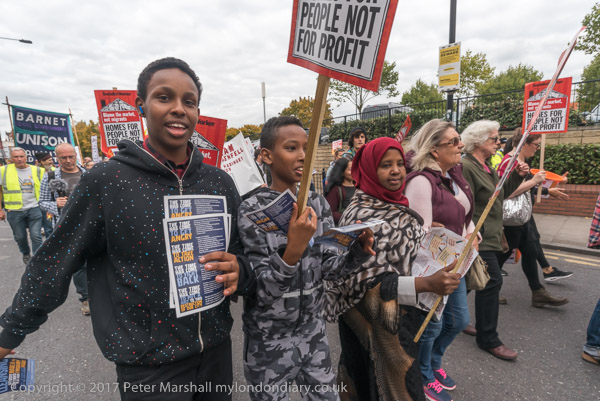
Local government is still subject to restrictions imposed by national policies, and in particular policies that encourage rising house prices, rents and subsidise private landlords, while still making it hard for councils to build new council properties.
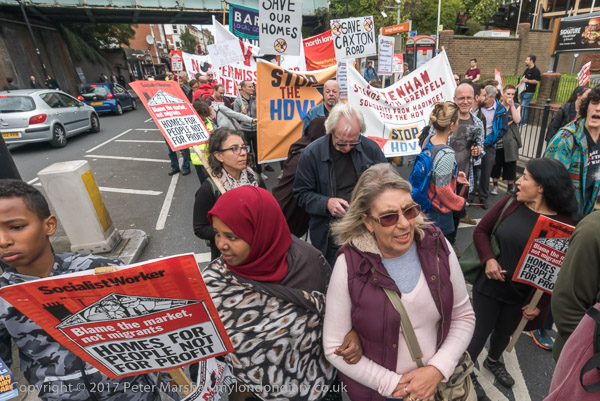
I left the march close to its end at Finsbury Park to catch the tube down to Brixton.
Haringey against council housing sell-off
One year of Ritzy strike – Brixton
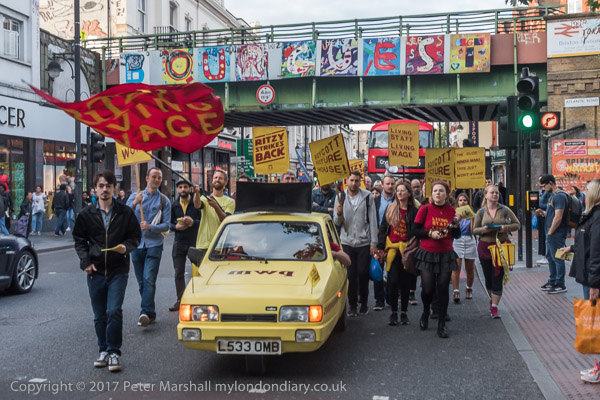
Strikers at the Ritzy Cinema in Brixton were celebrating a year of strike action with a rally supported by other trade unionists, including the United Voices of the World and the IWGB and other union branches.
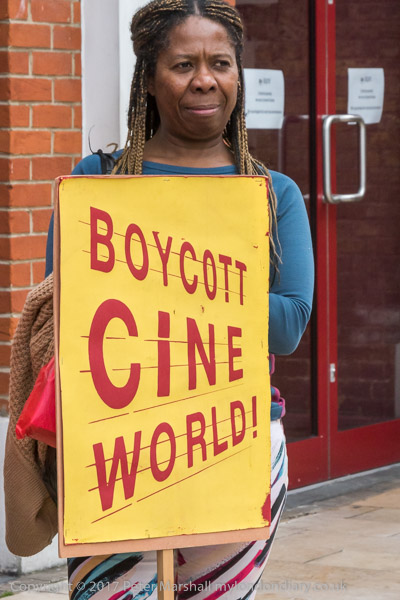
The BECTU strikers were demanding the London Living Wage, sick pay, maternity and paternity pay and for managers, supervisors, chefs and technical staff to be properly valued for their work. The also demand that four sacked union reps are reinstated.
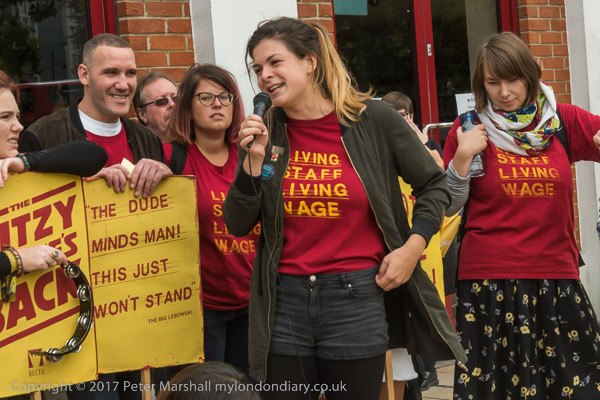
BECTU had been in dispute with the Ritzy since 2014, and had called for a boycott of the cinema, which was only finally called off in 2019. The Ritzy is one of a network of cinemas operated by Picturehouse Cinemas Ltd and owned by Cineworld, the world’s second largest cinema chain, based in London and operating in 10 countries including the USA.
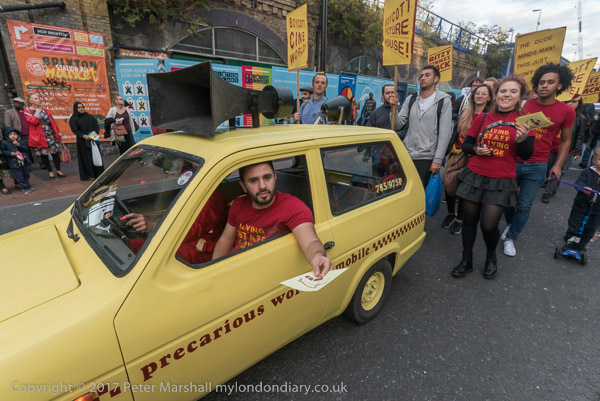
The Ritzy was closed for the rally, After a number of speeches there was a surprise with the arrival to cheers of a newly acquired ‘Precarious Workers Mobile’ bright yellow Reliant Robin, equipped with a powerful amplifier and loudspeaker. After more speeches this led the protesters in a slow march around central Brixton.